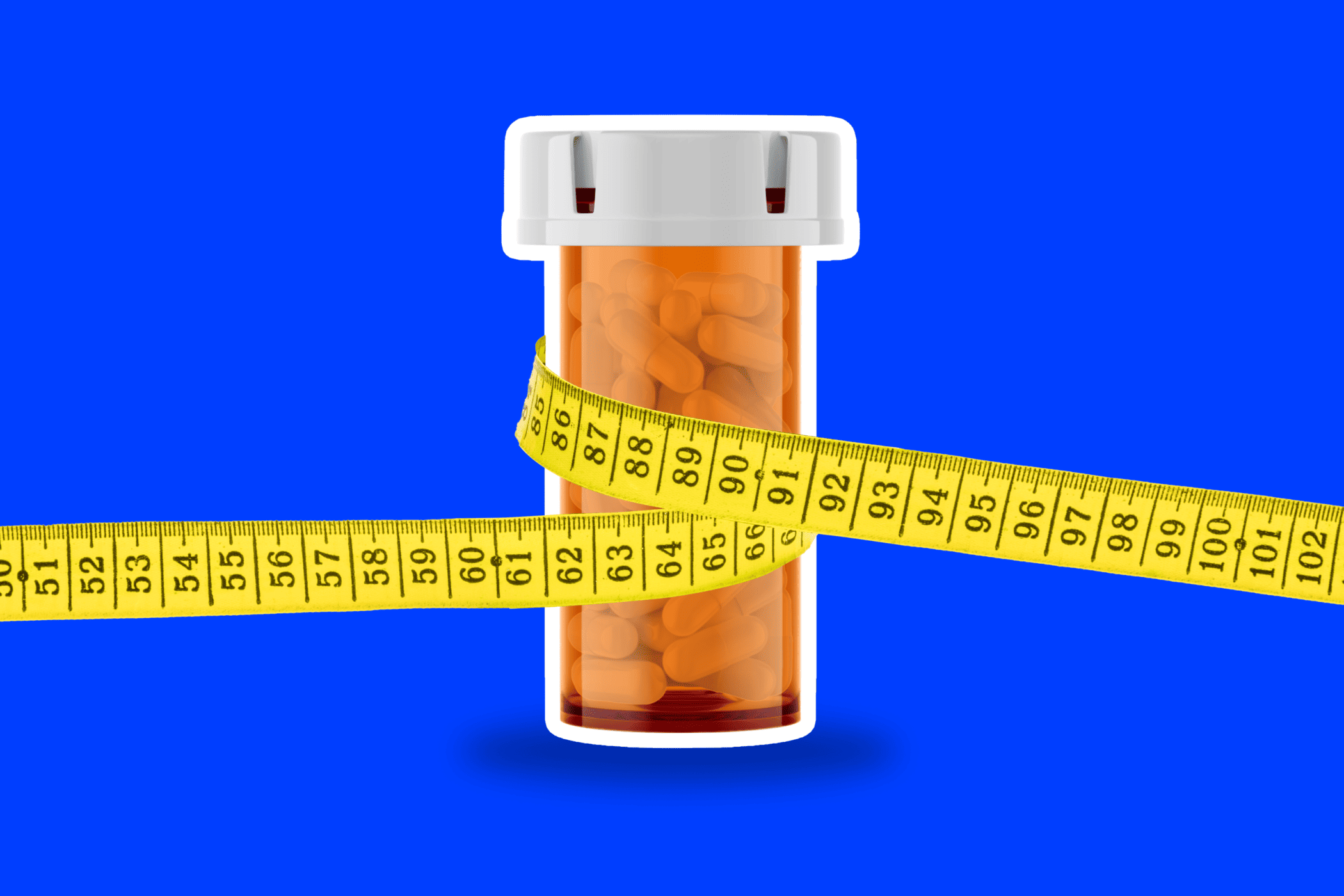Semaglutide injections, used to treat type 2 diabetes by promoting radical weight loss, are raking in historic profits.
This past September, Danish pharmaceutical company Novo Nordisk surpassed LVMH to become the most valuable listed company in Europe due to a surge in demand for its highly efficient diabetes and weight-loss medications, Ozempic and Wegovy. Not only has Novo seen record-breaking earnings and share values, but its staggering success put an end to the French luxury group’s two-and-a-half year-long market dominance.
These developments indicate a promising financial trajectory for weight loss drugs in the upcoming quarters, leading to a spike in document activity within the AlphaSense platform.

As companies within and outside of the biopharma industry look to take advantage of this wave of market activity, already, there’s a cohort of new weight loss drugs slated for FDA approval. Competition is brewing, setting the stage for a landscape that will rapidly evolve in 2024 and beyond.
Forces Behind the Market
Goldman Sachs Research projects the anti-obesity drug market to grow to $100 billion by 2030, as in 2023, the global market for anti-obesity medications (AOMs) reached $6 billion on an annualized basis. So what’s driving this exponential financial growth by the end of the decade?
“Social media activity documenting transformative weight loss, together with the establishment of affordable insurance coverage more quickly than anticipated, has helped drive demand for obesity medicines beyond our expectations,” says Mark Purcell, Morgan Stanley European Biopharmaceuticals analyst.
Globally, over 750 million individuals are classified as obese, and at least 2.8 million people die each year as a result of being overweight or obese, according to the World Health Organization. However, recent groundbreaking studies emphasize the importance of prioritizing weight management not only for obesity but also for associated health issues. One notable study indicates that weight-management medications can lower the risk of heart attacks, strokes, and cardiovascular deaths by a substantial 20%.
So as the obesity treatment sector evolves, so does the expanding scope of reimbursements for them. In the US, approximately 40 million individuals, out of the 110 million adults contending with obesity, now have access to these medications through their insurance plans—surpassing the estimated number of Americans with diabetes, which stands at 37 million.
The growing availability of new medicines is complemented by policy initiatives aimed at enhancing access, potentially encouraging more individuals to seek treatment. Notably, bipartisan efforts in the U.S. are progressing to establish Medicare coverage for obesity treatment, a development that holds promise for addressing this pervasive health challenge.
“The obesity market is still in its early stages,” Chris Shibutani, senior biopharmaceuticals analyst in Goldman Sachs Research, writes in the team’s report, noting there are uncertainties around the assumptions in the team’s model. The $100 billion forecast is “relatively sensitive to minor tweaks to underlying drivers.”
New Drugs in Development
As consumer interest in weight loss drugs peaks, researchers are actively investigating numerous oral prescriptions in clinical trials—with oral semaglutide, orforglipron, and danuglipron currently at the forefront of advancements. In addition, there are several other promising new developments, particularly injectables like retatrutide, CagriSema (a combination of cagrilintide and semaglutide), and others, all progressing through phase 3 clinical trials.
Notably, the landscape already boasts over ten FDA-approved medications dedicated to weight loss. Examples include Wegovy (injectable semaglutide), Saxenda (liraglutide), and Zepbound (tirzepatide), all contributing to the expanding array of options for individuals seeking effective weight management solutions.
- Oral semaglutide (i.e., glucagon-like peptide-1 (GLP-1) agonist) is taken once daily and mimics the effects of GLP-1, a gut hormone that’s involved in blood glucose (sugar) control, digestion, and appetite management. Novo Nordisk—the manufacturer of oral semaglutide—is planning on applying for FDA approval in 2024. The FDA will need several months to review the application after that.
Oral semaglutide was studied for weight loss in a phase 3 study called OASIS 1. People taking semaglutide 50 mg once daily lost up to 15% of their initial body weight after about 15 months (68 weeks) of use. This is comparable to Wegovy’s weight loss benefits, an injectable version of semaglutide.
- Orforglipron also acts as an oral glucagon-like peptide-1 (GLP-1) agonist but is distinguished by its composition of chemicals rather than peptides (amino acid chains) which enhances its stability in the stomach. Administered in the form of an oral capsule that is taken once daily, Orforglipron is currently undergoing a phase 3 study aimed at addressing chronic weight management in adults. The study is anticipated to conclude by mid-2027.
In a phase 2 trial, orforglipron demonstrated the potential to facilitate weight loss of up to 15% of body weight over approximately 8 months (36 weeks). Due to its distinct design, experts anticipate that orforglipron may be efficiently produced in large quantities. In contrast, competitor GLP-1 agonists, like Wegovy, are peptide-based and comparatively challenging to manufacture. This characteristic may position orforglipron as a more economically viable option for weight loss medication.
- APH-012 is an oral medication designed to replicate the metabolic effects of gastric bypass surgery, focusing on inducing weight loss. It takes the form of a glucose pill specifically engineered to stimulate specific regions of the small intestine. Administered as a once-daily oral medication, APH-012 is referred to by its manufacturer as a distal jejunal-release dextrose bead.
The phase 2 trial for APH-012 is presently ongoing and is scheduled to continue until March 2024. If the data from this phase proves to be positive, it is likely that a subsequent phase 3 study will be initiated. Effectiveness data is anticipated to be available by early 2024, shedding light on its potential in inducing desired metabolic and weight loss effects.
- Retatrutide is a medication currently being studied for weight loss and Type 2 diabetes treatment in adults. It works by binding to three receptors: GIP (glucose-dependent insulinotropic polypeptide), GLP-1, and glucagon and is administered through subcutaneous injection once weekly.
A phase 3 study focusing on weight loss is presently underway, with an anticipated completion date in early 2026. Positive data from this study could prompt a subsequent FDA approval request. According to estimates by Eli Lilly, the manufacturer, retatrutide may contribute to weight loss of up to 24% of the initial body weight over approximately 11 months (48 weeks). Notably, it is suggested to potentially surpass tirzepatide in terms of weight loss efficacy.
Researchers from Virginia Commonwealth University recently disclosed findings indicating that retatrutide has the potential to reduce liver fat levels. A recent analysis of a phase 2 trial revealed that over 85% of individuals receiving retatrutide for 48 weeks experienced resolution of their fatty liver disease. This discovery is particularly noteworthy, given the elevated risk of fatty liver disease among individuals classified as obese. Addressing this condition is crucial, as unmanaged fatty liver disease may progress to liver scarring or other significant health complications.
- CagriSema represents a combined treatment merging two injectable medications, cagrilintide and semaglutide. Cagrilintide emulates the hormone amylin, enhancing the sensation of fullness after meals, while semaglutide replicates the action of GLP-1.
Administered as an injectable medication beneath the skin on a weekly basis, CariSema entered a phase 3 in November 2022 and is slated to continue until October 2026. Preliminary results from a phase 2 study indicate that CagriSema induces significantly greater weight loss compared to cagrilintide and semaglutide as standalone treatments. Over a span of approximately 7 months (32 weeks), adults receiving weekly CagriSema experienced an average weight loss of 15% from their initial body weight.
Want to discover the weight-loss-drug-developments shaping the biopharma industry? Download our report, Obesity Treatments: An Outsized Opportunity, to learn the new GLP-1 based medications revolutionizing the obesity care space with premium insights from expert physicians.
Commentary from Industry Leaders
“And now we have seen with semaglutide as well that in an—obese population can also, to a large degree, actually decrease cardiovascular events. So that is an important one. But it’s also quite important to understand that it’s probably only 10% to 15% of obese individuals who are cardiovascular-risk patients…If you look into an organ like liver, there’s probably around 35% of obese individuals who have MACE or NASH. And this is where I see the bigger opportunity because there’s no treatment today for these indications. Then you can look into Alzheimer, where—which is also a huge challenge to society. And I don’t think that many people actually know that there is a very close relationship between obesity and Alzheimer as well due to probably the neuroinflammation.”
“So there’s these comorbidities that are less well known to the public, which I think are probably going to be even more important than the cardiovascular risk reduction in the future because we have tools to address the cardiovascular risk actually.”
– Zealand Pharma A/S | Goldman Sachs Healthcare C-Suite Unscripted Conference
“Additionally, current adoption of weight loss drugs such as Ozempic, have shown early tailwinds for our business model with Morgan Stanley analysts recently signing a survey that showed people’s greater propensity to get active after beginning injections. Our visitation rates remain strong with North American studio visits for the third quarter, up 30% year-over-year to a total of $13.1 million. This drove North American system-wide sales to $357 million during the period, an increase of 35% over the third quarter of 2022.”
– Xponential Fitness, Inc. | Q3 2023 Earnings Call
“Though the competitive landscape for GLP-1 receptor agonist containing weight loss drugs has been rapidly expanding, it has only been recently that the significance and desire to avoid the adverse effect of significant muscle loss caused by GLP-1 receptor agonist has been appreciated.”
“All GLP-1 receptor agonists work by creating a starvation state that non selectively reduces both muscle and fat tissues to cause the weight loss. Using a muscle preserving drug in combination with a GLP-1 receptor agonist would be a new indication.”
– Veru Inc. | Special Call
“We have started to see that the incredible demand for these medications has outpaced supply with shortages reported for Ozempic, Wegovy, Mounjaro and even Saxenda.While these supply issues will have a revenue impact, which you will hear more from Heather about, please keep in mind that access to these medications is still at a very early stage, but we expect it will grow exponentially in the years ahead.”
“Of course, as with any new industry, there are fits and starts, such as we are seeing with the current supply capacity of all GLP-1 medication. Our clinicians and care team are helping members navigate the current environment by being transparent on the situation and when appropriate, prescribing alternatives across a wide formulary. We see this time as an opportunity where we can utilize this window to scale up operations and increase readiness ahead of the return of supply as well as ahead of our peak season.”
– WW International, Inc. | Q2 2023 Earnings Call
Tracking Pharma Developments in Real-Time
Identifying and pursuing pharma industry trends can be a full-time endeavor, as new weight loss drugs and approval processes are constantly being introduced to the market. It’s why more C-Suite executives are implementing market intelligence platforms that leverage AI into their operations and enable them to quickly find the answers they need to act confidently and swiftly. AlphaSense provides this and more.
Discover our extensive content library, aggregating business documents from over 10,0000 content sources, as well as our powerful AI search technology, and be at the forefront of your industry.
Weight loss drugs are just one of the many market-moving trends projected to shape 2024. Curious to learn what else this year has in store? Be sure to download our report, 10 Market-Moving Trends for 2024, to get ahead of what’s to unfold in coming quarters.
Start your free trial with AlphaSense today to see how our platform can get you ahead of your competition.




